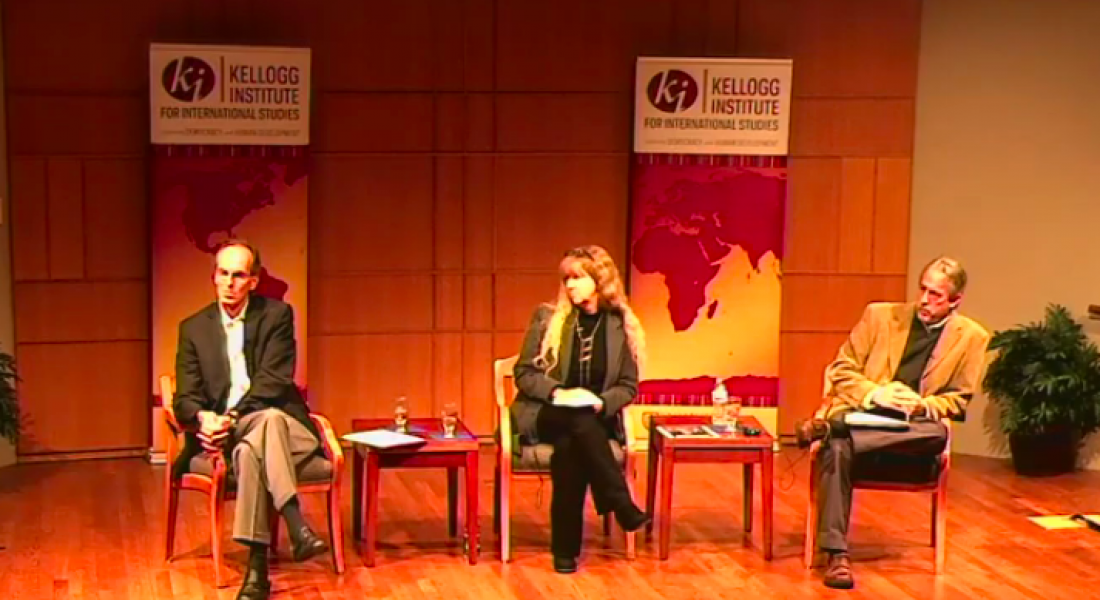
Two comparative political scientists – both former visiting fellows at the Kellogg Institute for International Studies – offered differing opinions at a recent dialogue on the resiliency of American democracy under President Donald Trump.
Kenneth Roberts, the Richard J. Schwartz Professor of government at Cornell University, and Kurt Weyland, the Mike Hogg Professor in Liberal Arts in government at the University of Texas at Austin, spoke at the Institute in late November on “Does Trump’s Populism Threaten US Democracy? Lessons from Latin America and Europe.”
Both study Latin American and European countries’ experiences with populism and the erosion of democracy.
And while both said democracy in the US isn’t on the verge of breaking down, Roberts cautioned that there are serious threats to it that scholars should recognize and take seriously.
Actors operating within democratic institutions – as political candidates or leaders of political parties, for example – pose the primary challenge.
“They’re seeking electoral mandates, but they’re doing so while engaging in political practices that often clash with democratic norms and rules and procedures,” he said.
The Democratic Party remains the primary check on Trump, he said, but added that there is an ongoing struggle in the Republican Party of whether Trump or government-level institutions deserve more loyalty.
Weyland, however, was more optimistic, saying the conditions necessary for a populist to succeed – institutional weakness, party collapse, and severe crisis – don’t exist in the US.
He noted that Trump isn’t very popular for a populist, with an approval rating of about 40 percent, compared to about 70 percent for Hugo Chavez during the former Venezuelan president’s tenure.
In fact, anger at Trump could help revitalize democracy, as evidenced by an increase in protests and the number of political candidates in the midterm elections.
“I personally think the risk of democratic backsliding in the United States is very, very low,” Weyland said.
Sharon Schierling, the Institute’s managing director, moderated the event.





